Introduction
Axelerant is a global company. But you'd be excused for thinking that it's an Indian firm. Many of our team members indeed come from the Indian subcontinent. It all began here.
It's easy to perceive us as "foreign."
But we've got teammates scattered across the world, in different time zones. And each of us is an integral part of the organization.
Here's the Low-down
Anything seen as "offshore" is hard to trust. And there's a good reason behind it. We tend to fear the unknown.
Questions may pop up in your head when applying with us.
You might need to consider several things about the people, culture, pay, and work.
It's only natural.
That's why I set out to ask the hard questions from two of our directors.
Meet Nathan
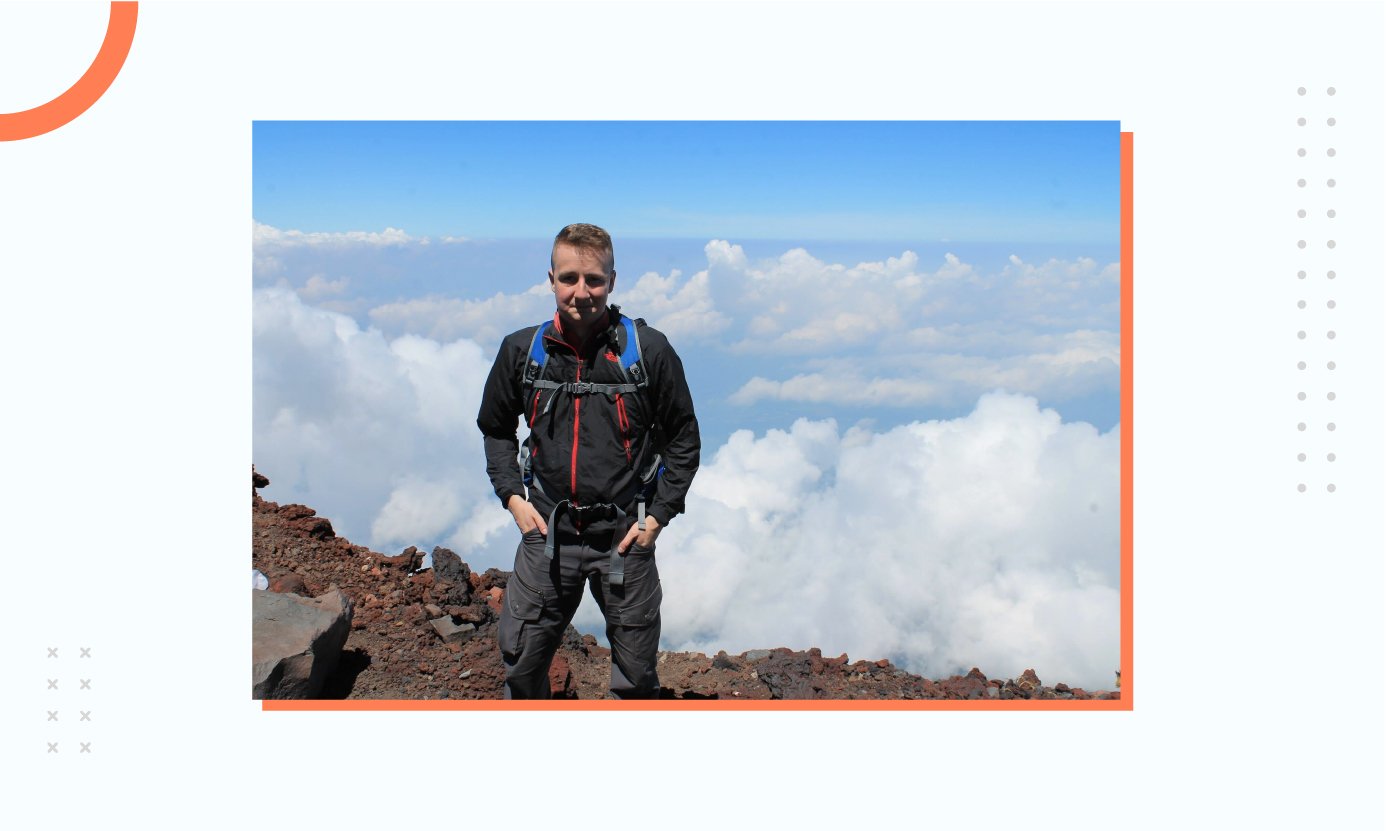
Nathan Roach is the Marketing Director at Axelerant. He promptly corrected me when I asked him why he stayed at Axelerant for over half a decade.
"Well, I'm coming up on my seventh year. And I suppose I never expected to stay for so long."
Nathan grew up in Central New York. He is a little amused by how many people think New York means just New York City.
"There's actually a whole other state connected to New York City. I grew up in a small city called Syracuse," he clarified.
This year, he will be moving to Spain with his family—the third country he'll reside in outside the USA while working at Axelerant, after Japan and Germany.
And Dunia
Dunia Leal has donned different hats in her career—lawyer, career consulting, project lead, contract analyst—and now, the Global Recruitment Manager at Axelerant.
I first saw her in a dragon boat race video she shared on Slack. She was in the front of the boat, rowing frantically as the vessel cut through the water.
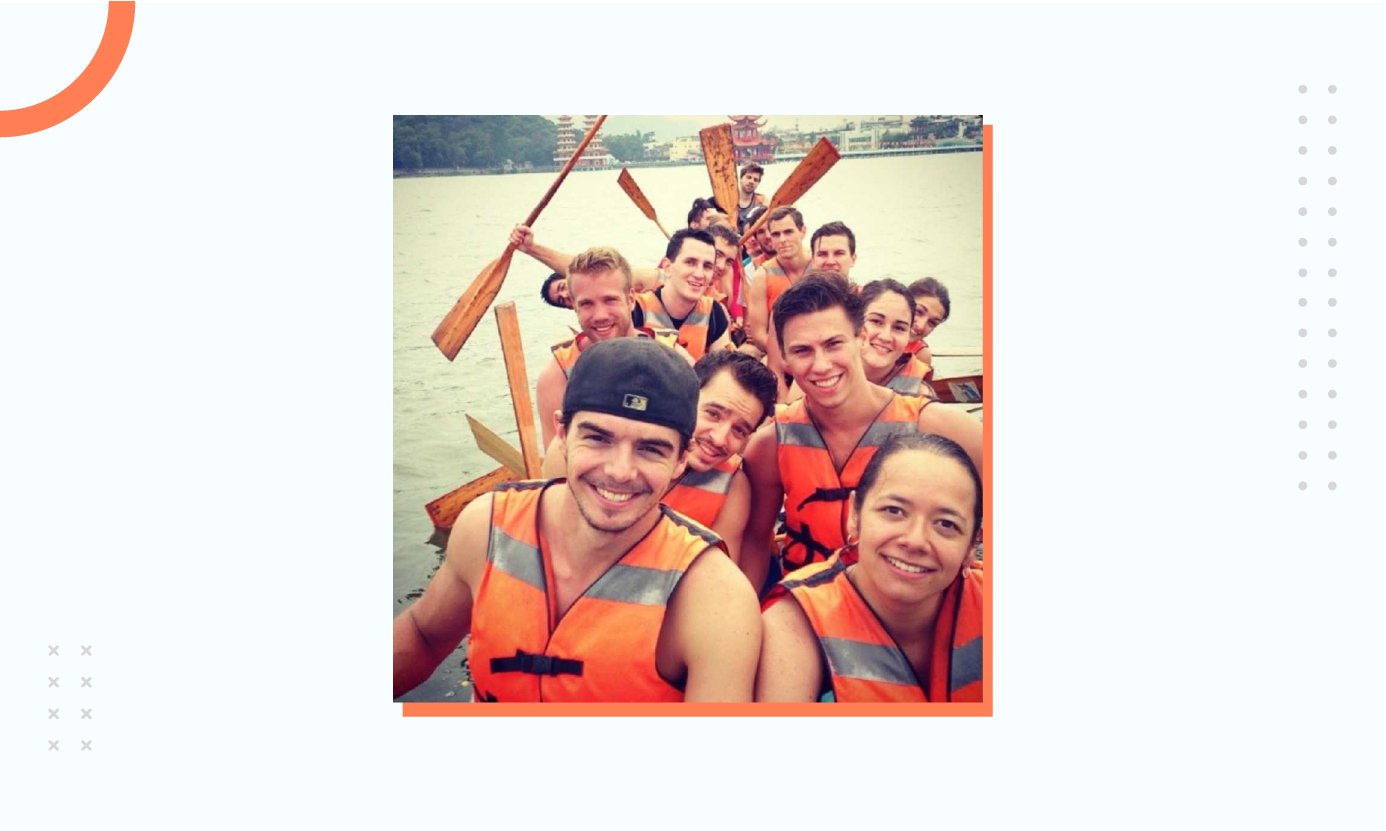
Dunia grew up in Guatemala, Central America. "I'm 100% Guatemalan," she said proudly, "I've lived almost all my life here."
She was in Taiwan when the video was taken. During her master's degree, Dunia bagged a scholarship that included a language exchange program.
"I was always interested in learning Mandarin Chinese, and when I saw the opportunity, I grabbed it in the blink of an eye."
Before Joining Axelerant, Dunia Traveled to Taiwan
During her law degree in Guatemala, Dunia worked on contracts, labor, civil, and even criminal law. In Taiwan, she taught English and Spanish during her master's degree.
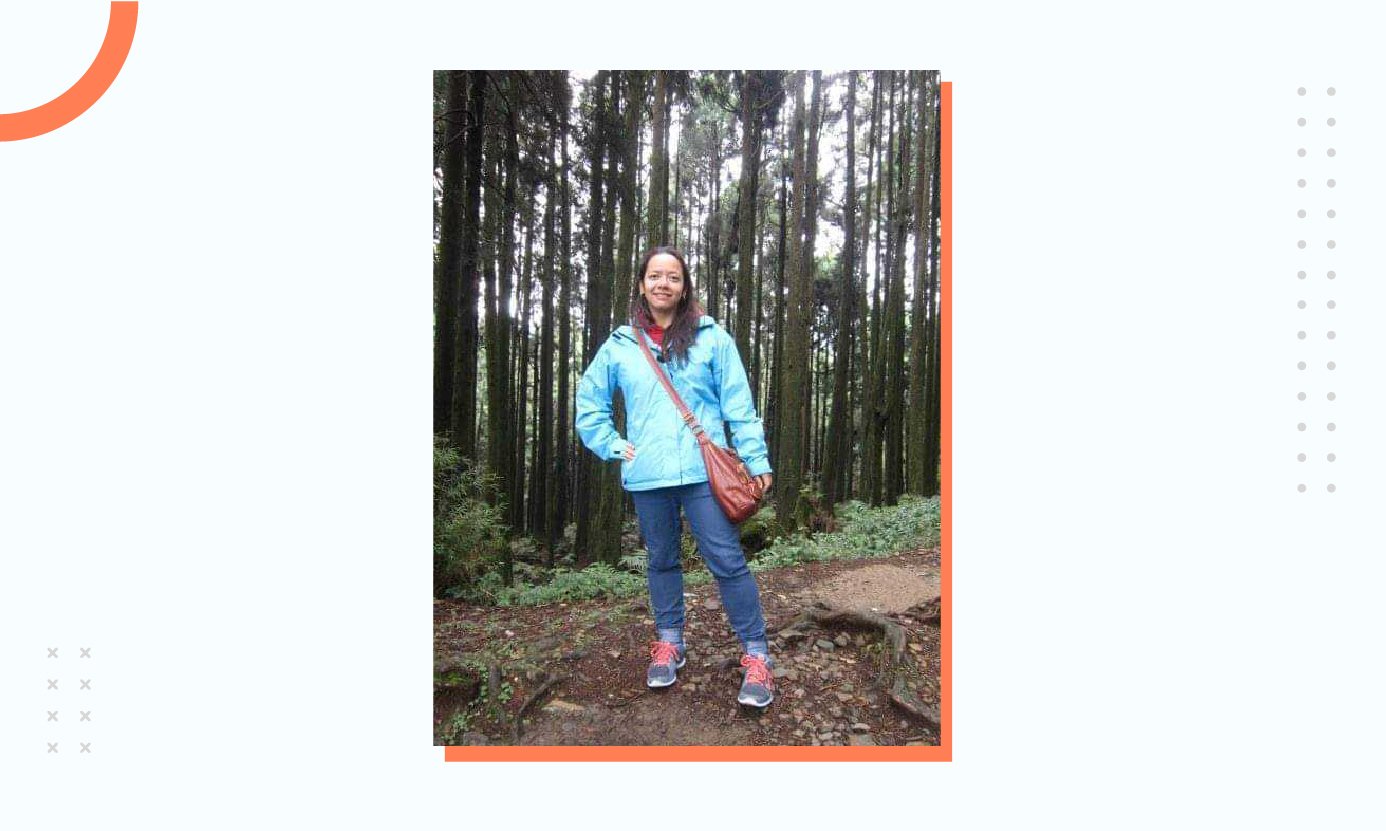
"It was around this time I realized that people operations was an important career area, that working in this field would allow me to connect and help people," she said.
Dunia got a second master's degree in people operations soon after.
During her five years in Taiwan, she worked as a recruiter for a steel company. "I dabbled in sales, recruitment, and administrative support," Dunia recalled.
But in 2014, she returned to Guatemala. "I wanted to be close to my family, take care of my parents."
And Nathan Wanted to See the World
"I went to college in Albany, which wasn’t too far from where I grew up," said Nathan. "I always had this inclination to see different places and decided pretty early that I would get out of dodge."
In his first nature of mathematics class, Nathan met Rebecca, who shared his passion for exploring the world. "Our focus was always to travel and get out of our comfort zones," he reflected.
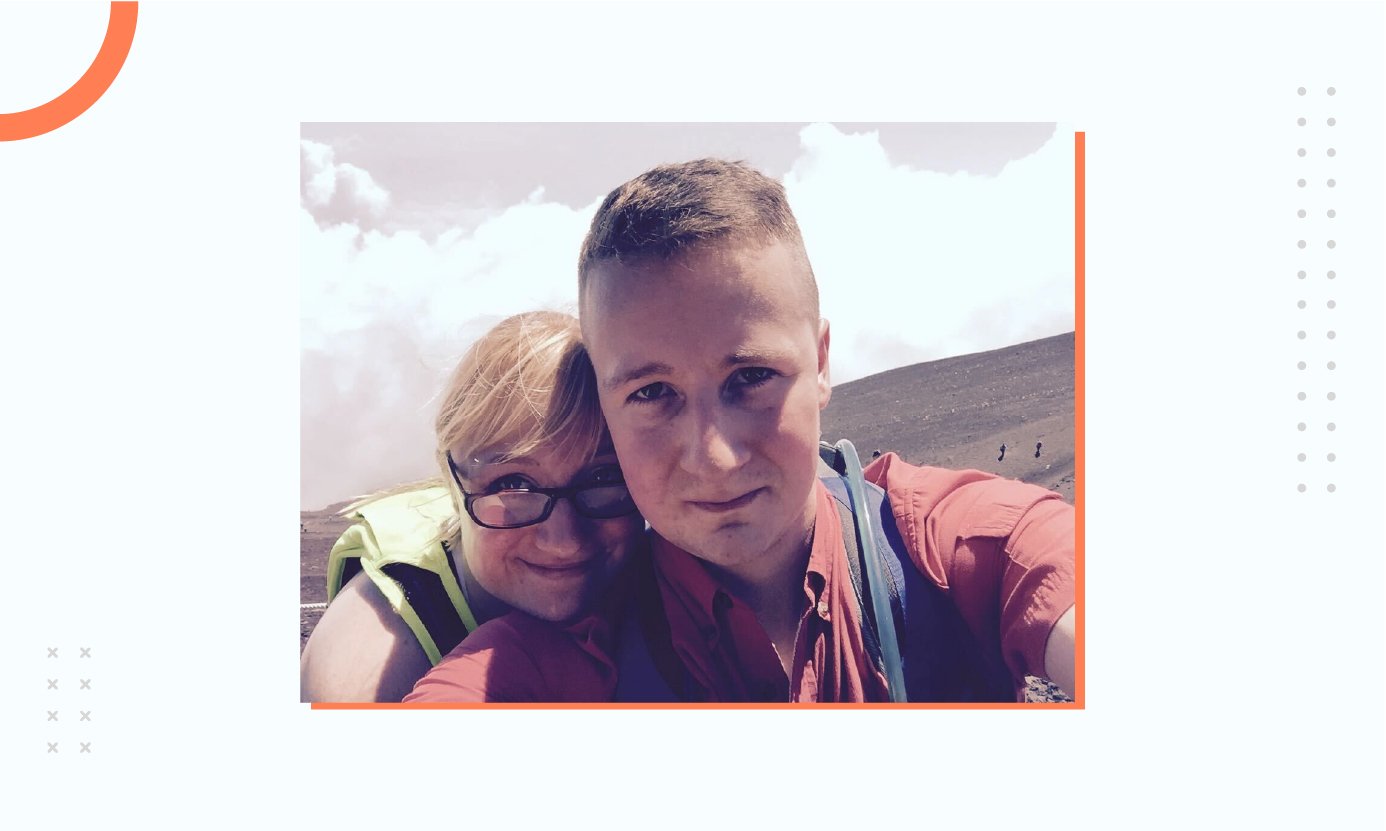
"I was working with an inbound marketing agency based in Boston at the time. It was a remote job. So I could go anywhere I wanted," he said.
Rebecca's job enabled her to relocate to different countries. After marriage, they followed through on their desire for world travel. They got an opportunity to work in Northern Japan, in the suburbs of Aomori, in Aomori Prefecture.
"We packed our bags and left," said Nathan.
Why Did They Join Axelerant?
Everyone has their story of finding out about and joining this organization.
Dunia was Doing Great
Returning to Guatemala after four years, Dunia realized that everyone had moved on in their lives. "Most of my friends had gotten married, started families, and established careers," she recalled.
She got two job offers: first, as a lawyer, and second, in a people operations role at Xerox.
"I took the second. I love helping people find jobs. I enjoy talking and connecting with them," she said. Her passion helped her climb the ranks fast.
But She Needed the Flexibility to Take Care of Her Family
When her mother was diagnosed with cancer, she decided to be there for her.
"She got very sick. She needed someone to take care of her. So I stopped working for a while."
She took a career break and tended to her mother until her last breath, accompanying her to chemotherapy and other medical sessions.
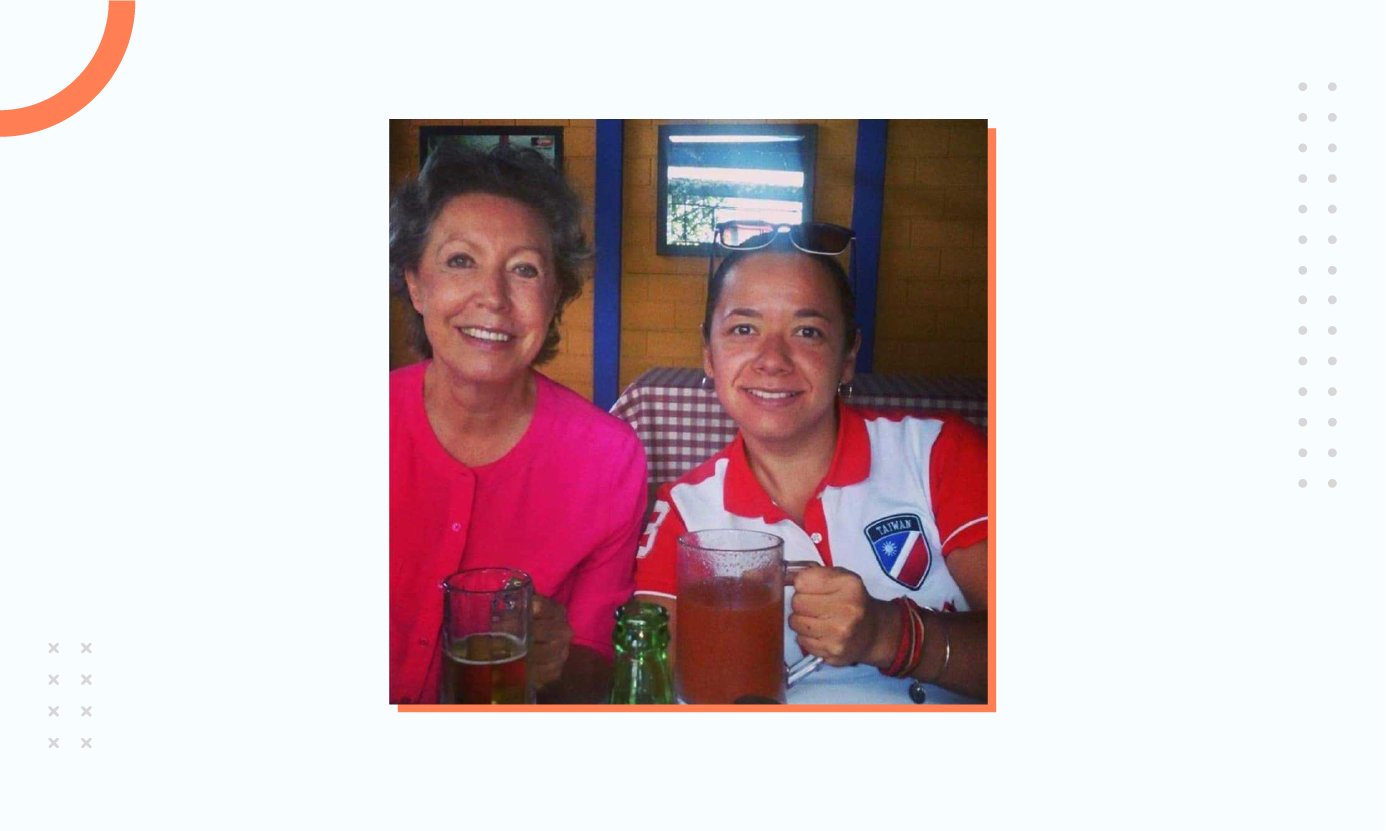
Trying to restart work proved difficult. Dunia grappled with questions about the gap in her resume during interviews.
"I was looking for work on LinkedIn and came across an Axelerant opening for a recruitment manager based in Taiwan," she recalled.
Dunia was intrigued. When she learned that it was a 100% remote position, she felt unsure about the job. "I checked Glassdoor and was amazed at the reviews about the company."
"It didn't take long for me to apply after that," she said.
Nathan was Living His Dream
For Nathan and his wife, moving to Japan was a fresh start. "We were very excited," said Nathan
It was their first time visiting Japan, and they immersed themselves in their culture.
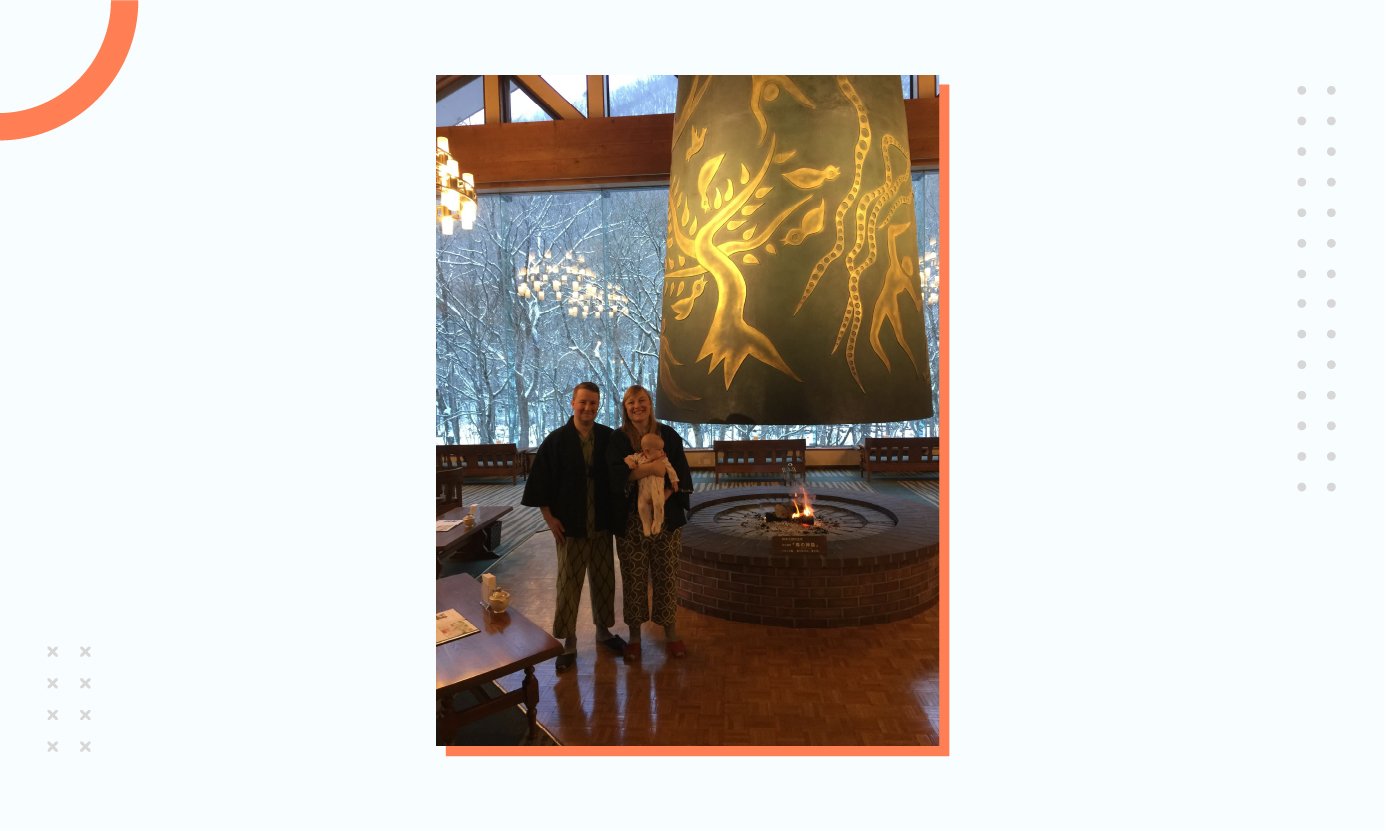
Though he was enjoying his time, the reality of the situation soon kicked in for Nathan.
"You have this image of the adventure of traveling and living abroad, and you don't often consider the challenges."
Nathan was still working at the east coast firm, which functioned in a different time zone. "There's a 13-hour time difference between Japan and the northeast US," he said.
Until it Turned into a Nightmare at Work
"I was working from 2 AM through 11 in the morning. Initially, things were manageable, but it became impossible to keep up," Nathan shared.
He requested some flexibility in the office, but to no avail, as he was the only team member working outside of the US.
"You've to understand that they were still figuring out stuff about remote work. It was tough. It wasn't anything like what we have in Axelerant," he clarified.
The situation began affecting his health. He felt tired and groggy during the day and had a limited window to talk to his wife. "It all blended into this really difficult time," he said.
He Finally Decided to Move On
"I'd had enough of it. I left the agency and picked up freelancing gigs while searching for a job," Nathan shared. He searched for a job in the East to have daytime work hours.
In this quest, he found a strange marketing job post.
"The job description said something like, 'If you don't have metrics to show for your work, it'll be a bad day for you,'" recalled Nathan, laughing.
He discovered that Axelerant operated in different time zones, which meant his being in Japan wouldn't require him to work odd hours.
Nathan checked the Axelerant website and realized the potential to transform the marketing initiatives to a new level.
But the job description amused him.
"So I wrote this long email about all the things that I thought they were doing wrong. And I sent this across to the person who'd written the job description," said Nathan.
He didn't know the person behind the other side of the screen was Michael Cannon, Chief Success Officer, Axelerant.
"I didn't expect to hear back. But I did, for an interview. And that's how I got the job," recalled Nathan.
What do Their Friends and Family Think About Their Work?
It matters what the people around you think about your work.
That's why I wanted to know what our global team members face when their friends and family become aware of their work at Axelerant.
For Dunia, it was a Bold Move
"This was the first time I stepped into the tech industry," Dunia said.
Dunia is grateful that she works in a fully remote company. She no longer has to travel to different countries or places for work.
"I want to be there for my father, too, and working at Axelerant makes it possible," shared Dunia.
Among friends, she has become a sort of trailblazer. "They are amazed that I've joined a tech company outside of Guatemala," she shared.
Her friends reach out to her about her work. "Many of them are eager to join Axelerant," she said.
She's recently gained popularity among her LinkedIn connections, too. "People from Latin America reach out to me for job openings ever since I started sharing Axelerant posts," she shared.
And Nathan had Some Explaining to do
"I can't speak for all Americans, but there is a general perception among our generation that if you're getting a call from India, it's to sell you something or scam you," shared Nathan.
Nathan's experience showed him that people in the West primarily associated the Indian workforce with the tech industry and tech support.
"In the early 2000s and sometimes today, when people called for tech support, they would be redirected to someone in India and other Southeast Asian countries. These experiences were not always favorable," he recalled.
About His Lifestyle and Work Culture
Now the perception is slowly changing.
"When I tell my friends that over 80% of my colleagues are from India, that's a shock," he shared.
Nathan gets questions like: "How does the whole thing work? How do you collaborate with them? Have you been to India? Do they clearly understand you? What are your colleagues like?"
"I certainly get way more interest in my job than I would've, working at this US-based agency, right?" he laughed.
"I've logged into work across over a dozen countries in the last six years. My wife and I are like slow-moving digital nomads," Nathan smiled.
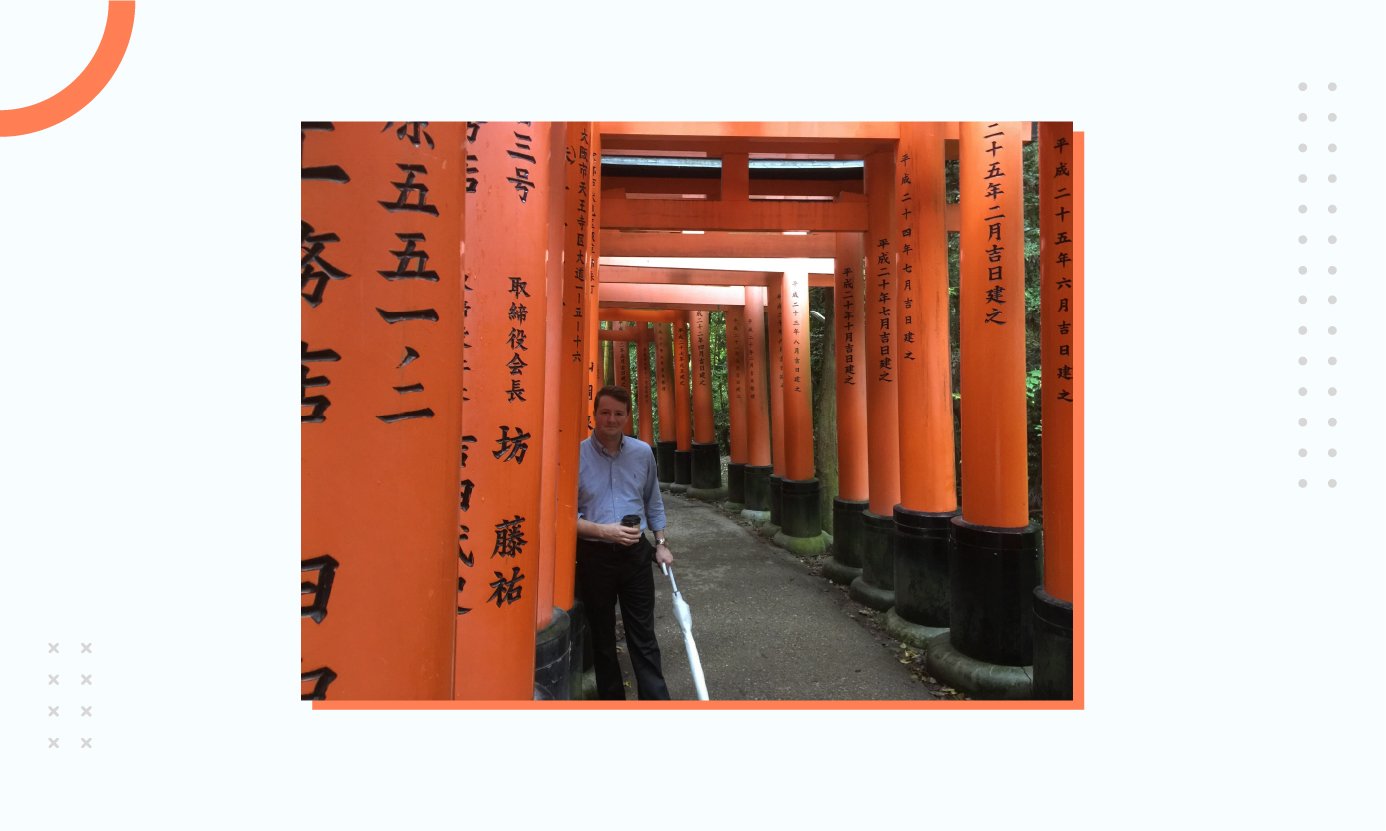
People are amazed when they hear about their traveling lifestyle. Though it's a global economy, not many people get the chance to travel the world while holding a steady, flexible job.
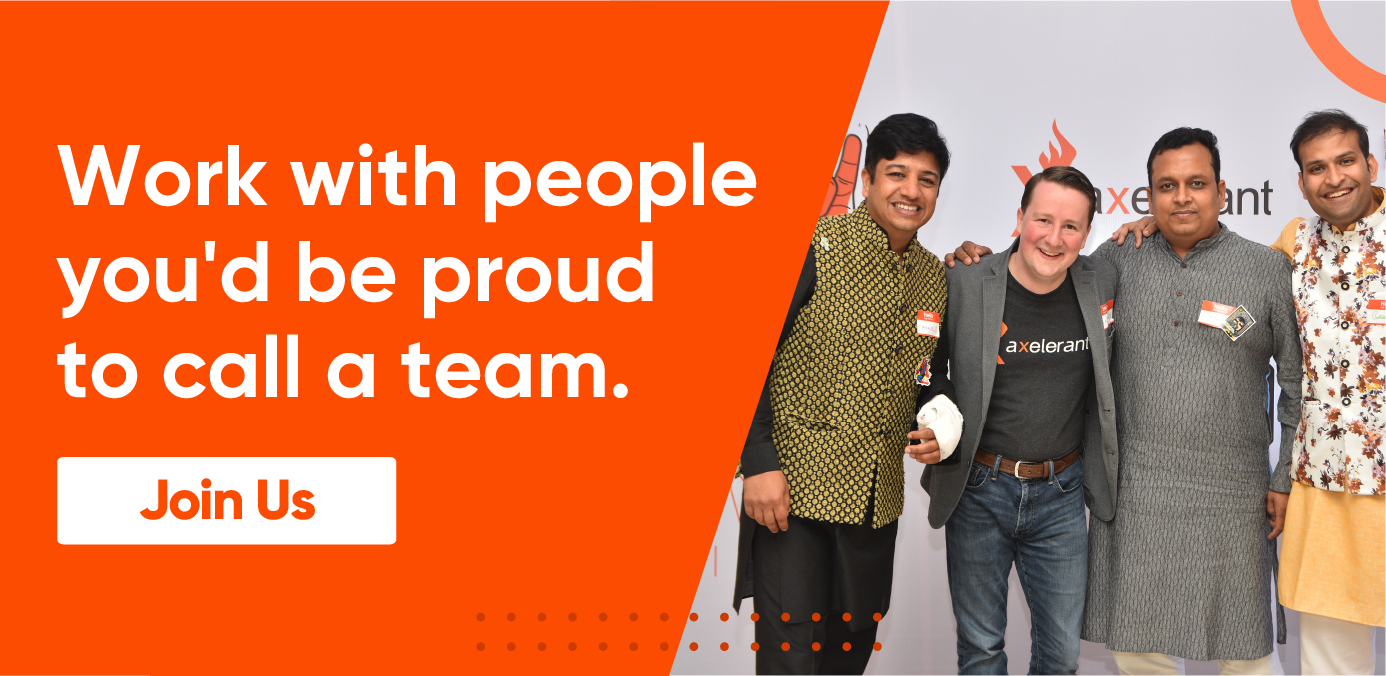
And What About the Pay?
Salary is one of the fundamental reasons for most people to work. It's one of the first things anyone ever wonders about a job.
For Dunia, it's More than Just the Money
"In Latin American nations, there's a lot of business coming in from BPO (business process outsourcing) companies and call centers," said Dunia.
These opportunities provide a good income, especially for people who speak English. One of Dunia's friends works at a call center. She sheds light on the stunning ground reality from their experience.
"You have to put in at least eight hours per day with just 15 minutes of lunchtime. The schedule and reviews are strict," shared Dunia.
It's Also About the Progressive Benefits
These BPO organizations provide competitive salaries but fail to focus on other significant areas, like paid leaves. Most of these companies offer only 15 days off work annually, including festivals and national holidays.
"Axelerant offers more than double that number of paid leaves. There's no comparison," Dunia said.
There's also zero to minimum investment in their people's professional and personal growth.
"Axelerant provides several progressive benefits, like health and wellness, continuing education, childcare support, etc. These companies don't have any of that," she said.
"That's why I say it's not only about the money but also about the other benefits that the company can provide."
For Nathan, it's About Financial Growth
Nathan looked back in his career to when he joined Axelerant and worked out of Japan.
"You're legally allowed to exclude income tax up to a certain amount on foreign income. So, I was making more at Axelerant than before," explained Nathan.
With time, the need for financial growth became more prominent than before when the couple decided to start a family. "We've been able to grow financially along with the organization," he shared.
Before I could ask his opinion on Axelerant benefits, Nathan expressed: "It's important to consider the benefits that we have for our people."
His favorites are the childcare stipend, home office setup, and education allowances.
"I've got a generous stipend for working from a co-working space or a cafe. I can spend up to 3% of my whole salary on education. I'm getting my master's with that money right now," he shared.
Nathan believes that Axelerant can offer incredibly competitive local packages for North and South American people.
"I'd say that the company has grown to the point where we can be highly competitive in local marketplaces in Canada and the US."
Do They Ever Feel Like An Outsider?
Being a minority can be challenging for anyone in any situation, no matter where you belong.
It can be tough to work with people who look, speak, think, and behave differently than you or anyone you've ever known.
Nathan Had His Doubts
Nathan was one of the two Americans when he joined Axelerant.
When he shared the idea of working at an "Indian firm" (his initial perception of Axelerant), Nathan’s wife was apprehensive about him fitting in. He, too, was nervous about the idea.
But after joining, Nathan realized that he had made the right decision. "There is something amazing about working with people of different backgrounds," he shared.
"It's been a masterclass in understanding and learning from people from diverse places, who see the world differently from you," he recalled.
Over the years, Nathan visited India during the annual retreats.
"I've loved it from the first time I visited India," said Nathan.
And Dunia Walked into the Unknown Until a Surprise Meet in Orlando
Dunia applied at Axelerant, not knowing what type of culture to expect.
"I got an email from Michael for a meeting to explain my responsibilities after I accepted the job," she recalled.
Dunia was visiting her family in Orlando, USA, at the time. She said that she'd get back to him after returning to Guatemala. Incidentally, Michael, too, was visiting his family from Taiwan—in Orlando.
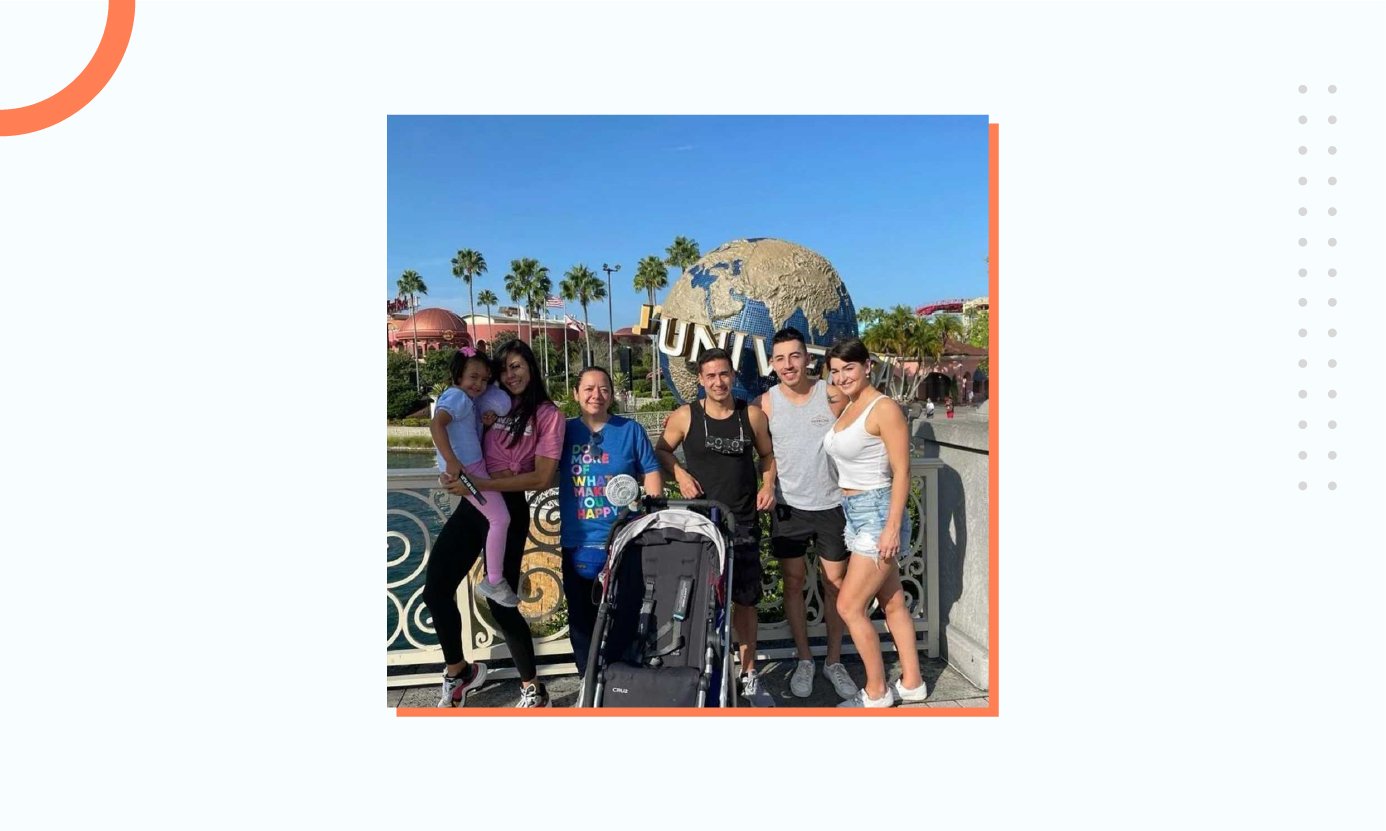
"The coincidence was incredible," Dunia gleamed. "Believe it or not, we both were staying at the same chain of hotels, five minutes apart."
After a long chat over a poolside table at JW Marriott, Dunia felt sure that she was at the right place.
Now, She's Confident About Axelerant's Inclusive Culture
"I've never felt like an outsider from that moment on," said Dunia.
During Ramadan, many team members shared images of their celebrations on Slack.
It was the first time Dunia became aware of the festival. "I wanted to know more about it," she said.
"So many people came forward and explained what the festival was about and how they celebrated it. It was a fascinating experience," Dunia shared.
She said: "I, too, share my culture and ideas with others. It's rare to find the kind of mutual respect we have in Axelerant for different cultures."
Why Remain at Axelerant?
Many Axelerant veterans have been with the company for more than half a decade, including Nathan.
I wondered what could be the reason behind such a high retention rate.
It's about Freedom and Growth
"The freedom that I enjoy and the adventures I've been on with Axelernant; I'm far happier with my work than many of my friends," said Nathan.
Axelerant started remote work long before the pandemic forced others to follow suit.
"We've been doing this for over a decade. So we know how to do this remarkably well," he shared.
Nathan believes that there's very little ground for comparison when considering benefits, work flexibility, and scope for growth.
"It shows in the lives of our team members that what we have is special," he said.
And Flexibility
Dunia wakes up at 5 AM, pours herself a hot cup of coffee, and starts the day. "I always like to start my day early," she explained.
After breakfast, she changes into a sporting gear. It helps her be consistent with her workout routine, which begins immediately after work at 3 PM.
"I exercise, watch TV, read books, or do whatever I want for the rest of the day. It feels really nice."


Rohit Ganguly, Content Marketer
Rohit is a content marketer first and a YouTuber second. He loves to interact with animals, feed them, clean his apartment, and spend time with friends and family. Curious by nature, he also enjoys literature, movies, meditation, and calligraphy.
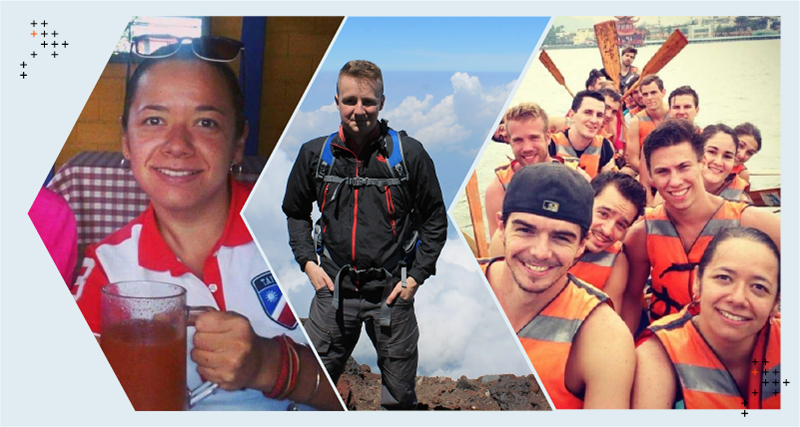
 We respect your privacy. Your information is safe.
We respect your privacy. Your information is safe.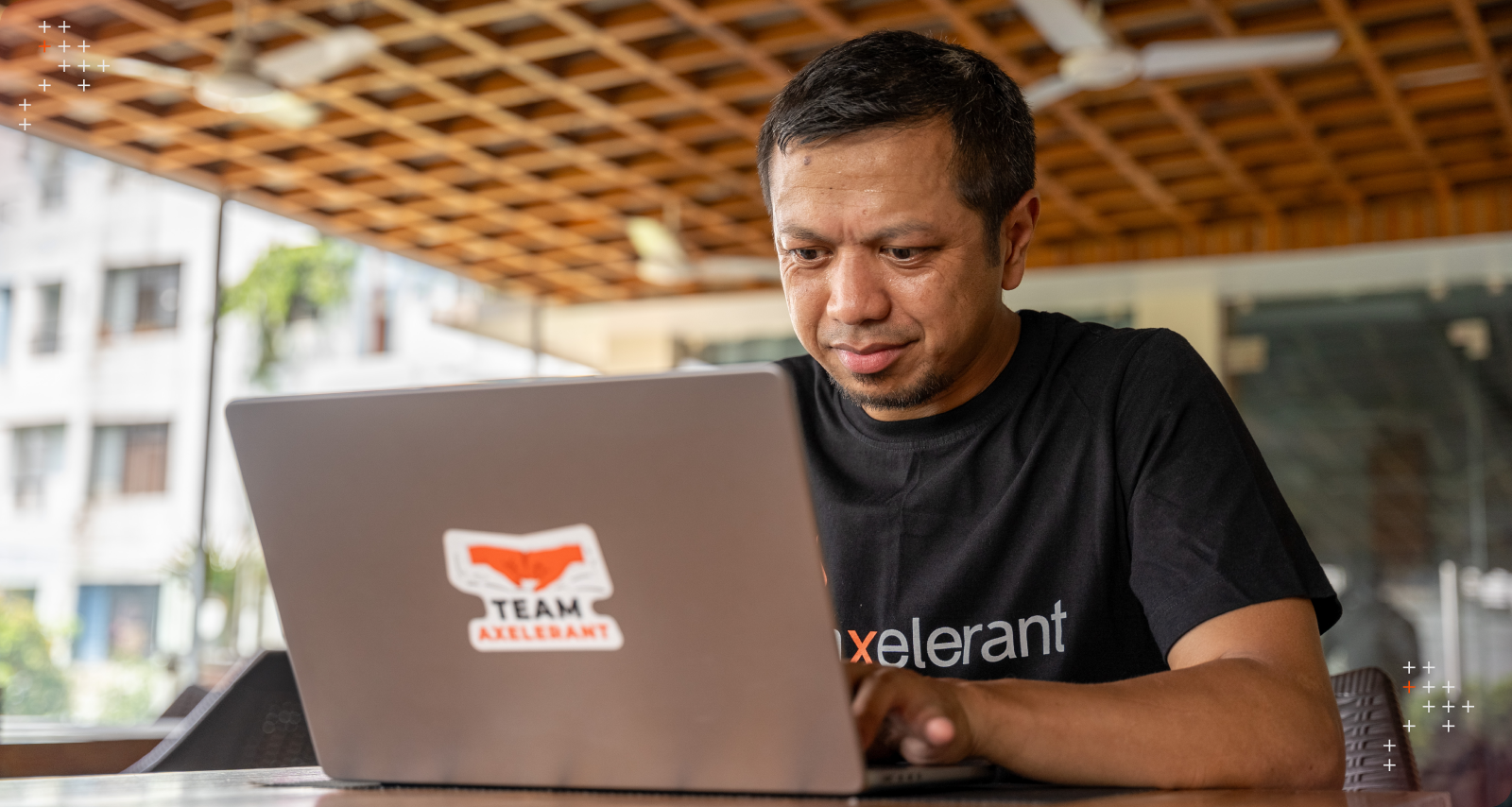

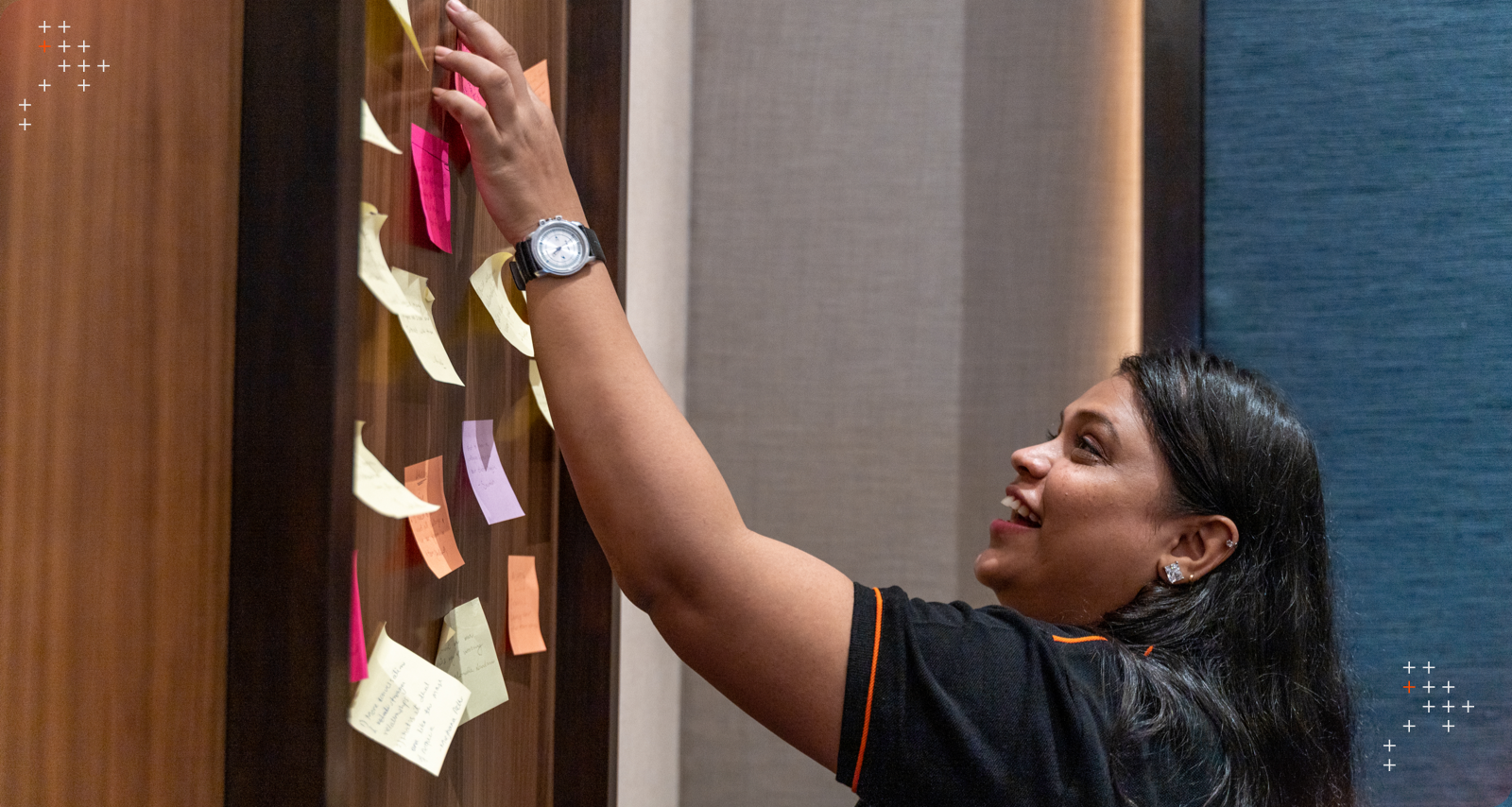

Leave us a comment